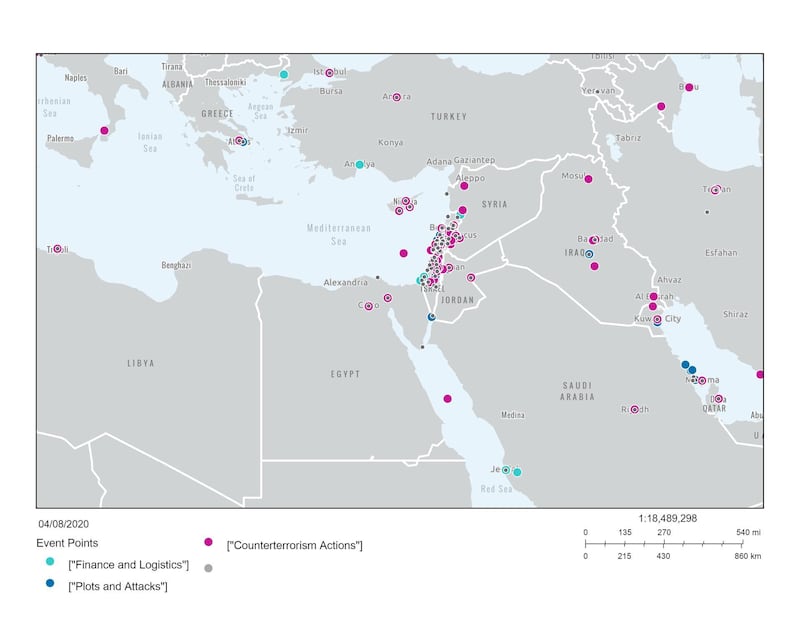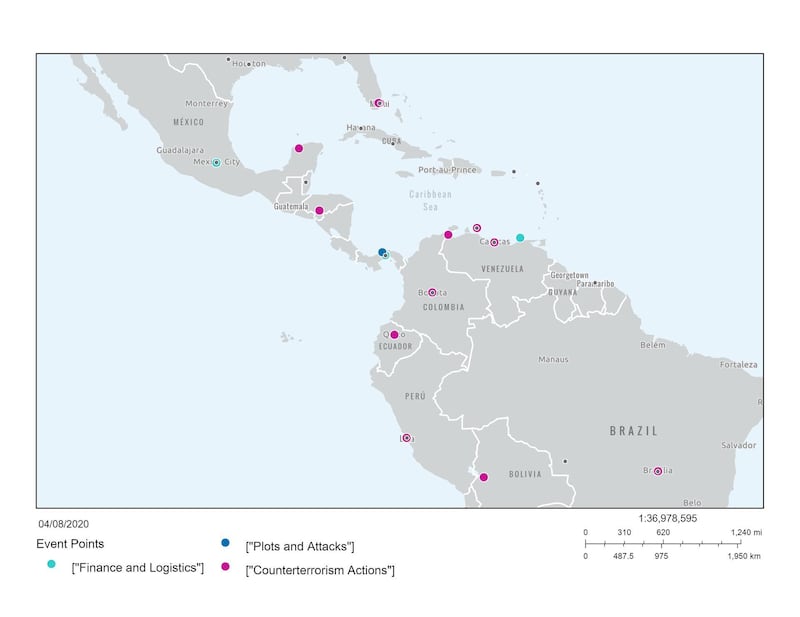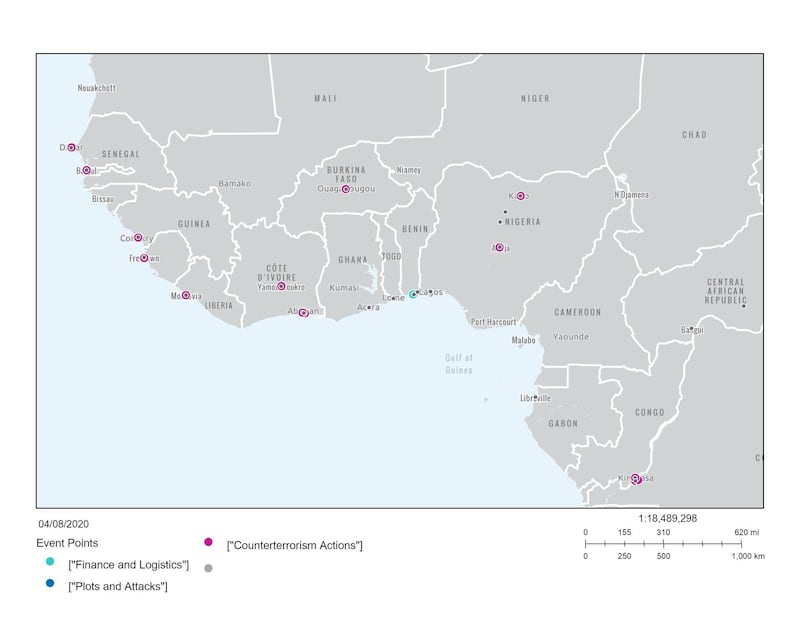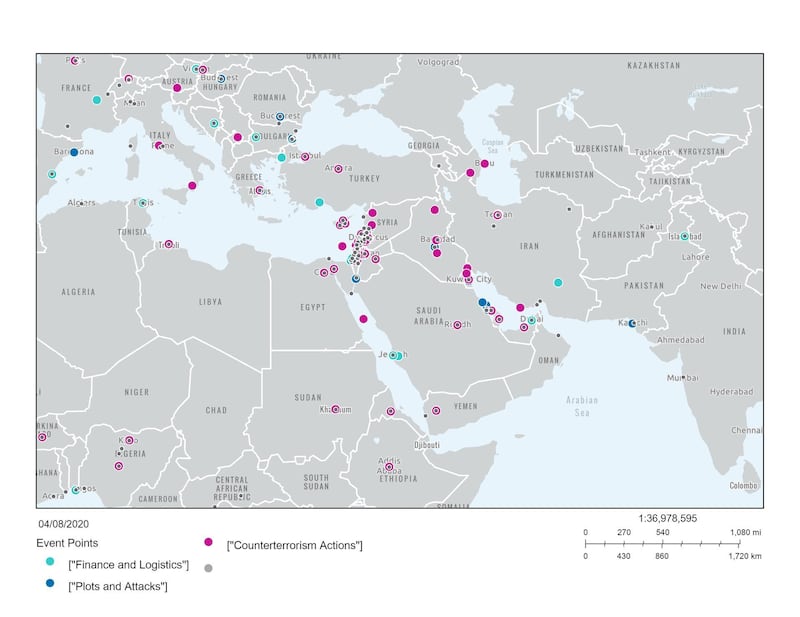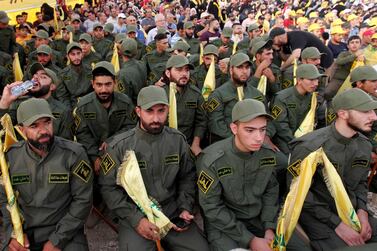Hezbollah is stockpiling weapons around the globe in preparation for a new terror offensive, a US presidential security adviser has disclosed.
The warning from Kash Patel, deputy assistant to the president for counter-terrorism at the US National Security Council, comes as a new map of the terror group’s plots, financing and global reach has been released online.
The golden rule of Hezbollah, and the key to its success, was “the less you know the better”, said Dr Matthew Levitt, the creator of the Lebanese Hezbollah Select Worldwide Activity map.
Mr Levitt hoped the research tool, which includes almost 1,000 entries on Hezbollah's activities since the 1980s, would “punch a hole” in the secrecy around the terror group.
The former FBI agent and other US intelligence officials were clear that the extremists were using Europe as a centre to raise funds and recruits for its political wing and the war in Syria.
The section with the most recent entries is the "Finance and Logistics" tab, which highlights fund-raising reports in European countries including Germany, Austria, Belgium and the Balkan states.
It appears that the cash is coming from many varied and lucrative operations, nearly all of them criminal.
They range from stolen cars, sometimes packed with drugs from South America, to money laundering and false charity donations.
The cash is needed to fund Hezbollah’s political wing in Lebanon and the comfortable lifestyle of its senior commanders, who have shown an ability to become rich at the end of a gun.
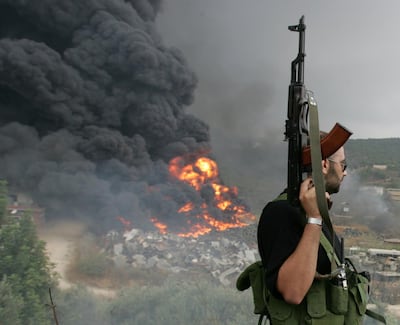
What also becomes clear from the map is Hezbollah’s global reach, potentially through the Lebanese diaspora that extends from Chile in South America to Angola and Ethiopia, and on to China, Japan and Australia.
Mr Levitt has unravelled a well-structured organisation that permeates the criminal world while hiding in plain sight.
He has now created a tool that will allow government agencies, journalists and politicians to view, at a couple of clicks, the extent of the organisation.
The map also establishes that for now, at least, Hezbollah has set aside its bombings, hijackings and kidnappings outside the Middle East for a bigger cash prize to be had in Europe.
With the continuing war in Syria, it can still answer the military urge of younger supporters by sending them off to battle but it is the smart business model that is paying dividends.
Washington is clearly irritated that only Britain among major European powers has fully proscribed Hezbollah as a terror group.
Its view is that continental Europe has allowed itself to become a comfortable place to raise funds, which is possibly why, as the map shows, there has been little “military” activity there in recent years.
Hezbollah chiefs are reluctant to kill the golden goose.
This is what frustrates advisers such as Mr Patel.
“Hezbollah is actively plotting and stockpiling weapons for terrorist attacks around the world, including in Europe,” he said at the map launch.
Only Kosovo has followed Britain’s lead. Mr Patel encourages other European states to designate Hezbollah a terrorist group and “shut down its terrorist activities”.
With Iran’s funding dropping to “$700 or $800 million” as sanctions bite, and low oil prices and the coronavirus pandemic have an impact, now was the time to clamp down, he said.
